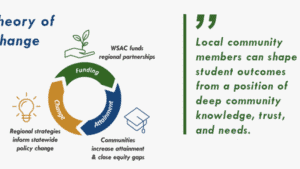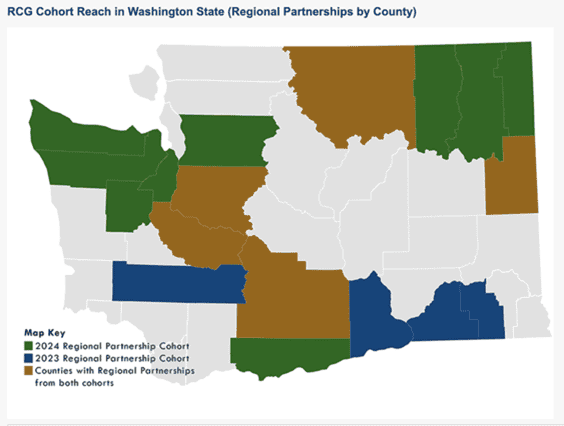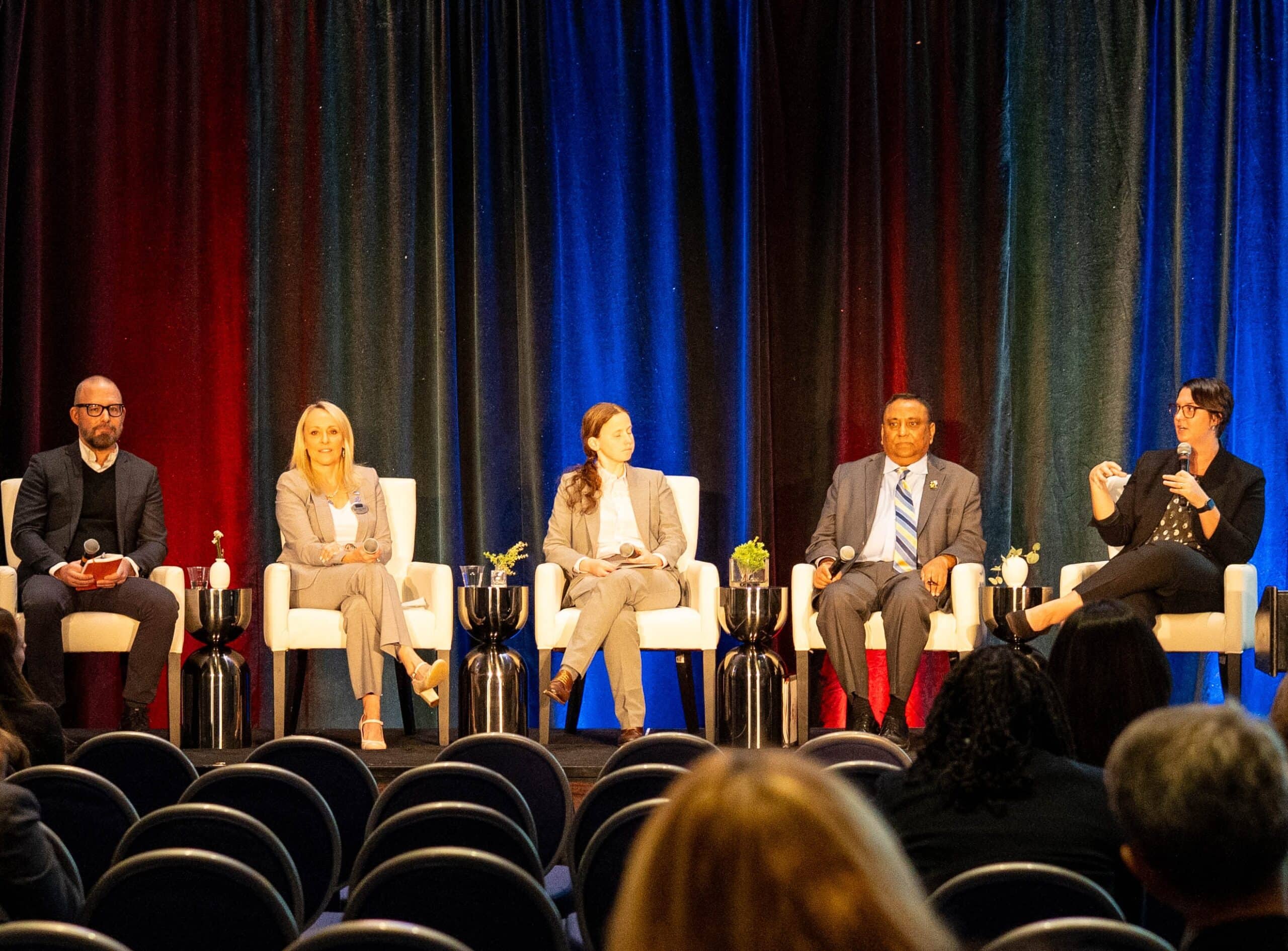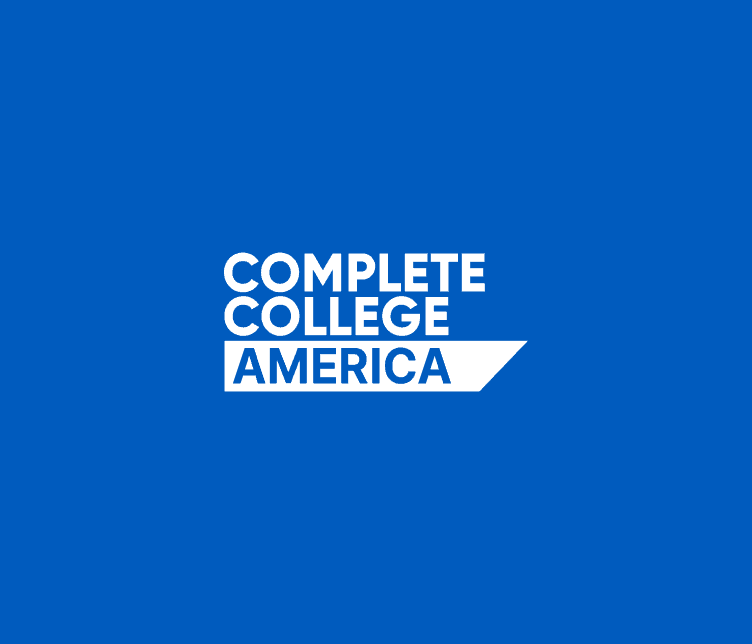When Communities Lead, Systems Change
In Seattle, where innovation thrives, a different kind of breakthrough was taking root—not in tech labs or boardrooms, but in classrooms, community centers, and living rooms where students, families, and trusted local leaders came together to reimagine postsecondary success.
At the center of this transformation was the Seattle Postsecondary Success Network, a coalition led by the City of Seattle. Through mentoring led by community members and organizations with shared lived experiences, BIPOC high school juniors, seniors, and Seattle Promise scholars gained more than academic advice, they gained a trusted circle of support. Enrichment activities, identity-affirming workshops, and community-based guidance created a foundation of belonging.
The impact? A 17-point increase in fall-to-fall retention for mentored students. But more importantly, it demonstrated that when communities lead, students don’t just stay, they succeed.
From Policy to Local Solutions to Statewide Systems Change
This success wasn’t just the result of a single program, it’s part of a larger, community-centered transformation strategy backed by policy and led by the Washington Student Achievement Council (WSAC) - the Regional Challenge Grant (RCG).
Washington’s Regional Challenge Grant emerged from a bold and innovative policy decision: the passage of SB 5789. This landmark legislation reshaped how the state invests in education by centering place-based, community-led partnerships as the foundation for increasing educational attainment. Instead of funding top-down programs designed in the capitol, Washington chose to invest in cross-sector partnerships rooted in local expertise.
With $22 million of state investment since 2022, RCG is rewriting the playbook on postsecondary attainment by placing power directly in the hands of communities. This investment is a strategic lever to achieve Washington’s 70% attainment goal by supporting cross-sector partnerships that unite schools, colleges, community-based organizations, local governments, and employers to co-create locally grounded, culturally responsive strategies.
This model reflects a deep belief: those closest to the barriers are best positioned to dismantle them. And when communities are supported to lead—working across traditional boundaries—they don’t just launch programs. They shift systems. Already, more than 135 organizations across 18 counties have mobilized to increase educational attainment through this model. And the outcomes are more than encouraging, they’re a call to action for what’s possible when community voice is valued and cross-sector collaboration is prioritized.


Proof Points: Community Innovation in Action
Across Washington, these community-powered partnerships are delivering results that only local leadership could produce:
- In Mabton, Yakima Valley Partners for Education tripled FAFSA completion from 22% to 64% over three months by leveraging trusted, Spanish-speaking tax preparers to support families.
- In eastern Washington, LaunchNW paired peer mentorship with individualized career coaching, leading to a 32-point jump in FAFSA completion from 28% to 60%.
- In Seattle, the Seattle Postsecondary Success Network’s mentorship model closed equity gaps in college persistence with a 17-point retention increase for BIPOC students.
- In Chehalis, a dual-generation approach through the Cornerstone Program helped 23% of participating parents enroll in postsecondary education, proving the power of family-focused strategies.
These outcomes weren’t designed in isolation. They reflect the collective wisdom, lived experience, and shared leadership of entire communities working across sectors to support their students.
Expanding the Vision: Supporting Adult Learners
In 2024, the RCG network grew from 8 to 13 partnerships, now touching over half the state’s population. This new cohort brings sharper focus to a group too often overlooked: adult learners.
Supporting adult learners is a critical component of reaching Washington’s 70% attainment goal, ensuring no one is left behind. And for many adults, especially those balancing work, caregiving, or returning to school after years away, postsecondary access and success can feel out of reach. That’s why RCG partnerships are meeting adult learners where they are, with strategies informed by community input and inter-organizational cooperation.
Community-Led Innovation for Adults
- ELEVATE, a partnership between Everett Community College and Evergreen Goodwill with others being recruited, offers credit for prior learning paired with wraparound support, from tech lending libraries to on-campus service hubs.
- The Olympic Peninsula Resource CO-OP coordinates access to college enrollment resources alongside access to services such as public benefits navigation across Forks, Port Angeles, and Port Townsend, removing systemic barriers through collective infrastructure.
This new phase of work is not only deeply informed by the communities it serves, but strengthened by continuous cross-partnership learning. As strategies evolve, insights are shared across the network, ensuring every region benefits from the innovations of its peers and contributing to a broader statewide strategy grounded in local expertise.
A Playbook for States: What Washington Shows Us
Washington’s approach is not just working, it’s redefining what success looks like in postsecondary access and completion. For states looking to replicate or adapt this model, the lessons are clear:
- Trust Community Expertise: Sustainable change starts with the people who know their communities best—students, families, educators, and local leaders.
- Center and Invest in Relationships: Lasting impact doesn’t come from programs alone. It comes from trusting relationships between sectors, across institutions, and within communities.
- Honor Local Contexts: A strategy that works in Seattle may not apply in rural Okanogan County. Washington’s model allows for place-based variation while uniting around shared goals.
- Co-Design Metrics of Success: Success looks different in every community; measurement should reflect local priorities. Outcomes are more meaningful when communities define what matters, rather than adapting to standardized, top-down metrics.
- Think in Systems, Act Across Sectors: No single sector can drive postsecondary success alone. RCG partnerships break down silos, align efforts, and multiply impact.
A Model for Transformational Change
As other states grapple with persistent gaps in college access and completion, Washington’s example offers both inspiration and a roadmap. The path to postsecondary success for all students doesn’t run through state capitols or institutional boardrooms alone, it runs through communities empowered to create the change they envision.
For those of us committed to student success, Washington’s Regional Challenge Grant reminds us that our greatest resource isn’t any single policy or program; it’s the collective wisdom, relationships, and determination of communities working together toward a shared vision of opportunity for all.
To learn more about the Regional Challenge Grant program and read detailed partnership profiles, visit wsac.wa.gov/challenge-grants.


